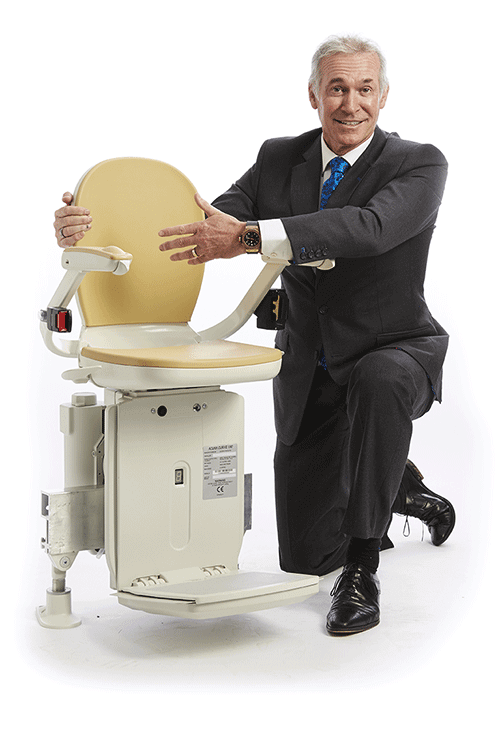When it comes to our loved ones, we only want the best.
These precious people are not just patients to us. They are our grandmothers and grandfathers, mums and dads, husbands and wives, sisters and brothers, and children. They are the people we love and care about—The people who give our lives meaning and purpose.
This is why it matters so much who you choose to be their carer.
What is a Carer?
A carer is simply someone who provides care to someone.
A carer can range anywhere from a person who is a professional carer and is paid to do this job for a living, to a mum of three who takes turns providing care for her ageing parents with her brother every other week.
What Does a Carer Do?
A carer can do as little or as much as you need them to do to properly care for your loved one and ensure that their needs are being met—This largely depends on your unique circumstances, as well as the specific needs of you and your loved one.
However, remember this important piece of information: Carers do not administer medical care, unless they possess the necessary medical credentials and are legalised to do so.
Carers are able to do many things such as going grocery shopping for your loved one, bathing them, cooking for them, driving them to doctor’s appointments, feeding them, and even managing prescribed medications—But in many cases, they are not trained, nor legally able, to perform acts of skilled care such as administration of medication, tube feeding, IV therapy, regular injections, etc.
If your loved one requires personal medical care and attention, you should consider hiring a carer and a registered nurse who is certified and qualified to perform such tasks.
What Kinds of Carers Are There?
There is a wide variety of types of carers out there to fulfill a wide variety of caring needs.
Just a few of the many examples of different kinds of carers include the following:
- Family carers
- Informal carers
- Professional carers
- Live-in carers
- Non-medical in-home carers
- Hospice carers
- Home health care carers
What Qualities Should I Look for in a Carer?
Everyone has their own personal preferences concerning what qualities are most important to them when choosing a carer.
However, there are a few non-negotiable qualities that everyone should be searching for when selecting a carer:
- Patience
- High level of observation
- Intelligence
- Kindness
- Composure
- Trustworthiness
- Honesty
- Deep love and passion for caring for others
- Friendliness
- Empathy
- Compassion
- Reliability
- Attentiveness
- Being clear and communicative
These qualities in a carer assure that your loved one’s needs will not only be met, but that your loved one will be treated and cared for in the same manner that someone who loves them would care for them.
Picking an Unpaid Carer
Whether you prefer that your loved ones are only cared for by people you know or you simply can’t afford to hire a professional, picking a friend or family member to be your carer is a safe solution that is also good for your savings.
However, just like the process of hiring a professional carer who you don’t know, there are steps and precautions that you should take when choosing who will be your loved one’s carer, regardless of whether they are relatives or friends.
Tips for Choosing the Right Family Member or Friend Carer for Your Loved One
1. Choose Your Carer Carefully
Yes, you may feel comforted by the fact that you have a close relationship with the person who will be your loved one’s carer—But be wary of the fact that there is more likely to be some level of bias in your decision when involving people who you already know.
You may love a particular family member or get along with them well, but that does not mean that they would be the best choice to be your loved one’s carer. There are many important factors to consider when making your decision that go beyond charm and charisma.
Is this person responsible? Are they reliable? Are they level-headed? Do they realistically have the time and energy to care for another person? These are all important questions to ask yourself when deciding who the best candidate for the carer position is.
It is also important to be aware of whether your friends or family members have a history of abuse, violence, or short tempers. These people are not good contenders for the role of a carer, as the everyday tasks that come with the job tend to sometimes be stressful, frustrating, or exhausting and can cause people with short tempers or violent/abusive tendencies to lash out at your undeserving loved one.
While it may feel uncomfortable telling a family member that they may not be the best fit, at the end of the day, it is well worth it. You would never want to sacrifice the health or safety of the person you love and care for.
2. When Possible, Split the Workload
While carers are amazing human beings who dedicate their time and energy towards helping others for long, grueling hours at a time, they are not machines that can run constantly without rest.
We are all human, and realistically, relying on only one person at all times is unsafe and impractical. This is why it is vital that there is always someone else that can care for the person, should you not be able to.
When possible, it is always a good idea to split the workload among trusted friends, family, neighbours, or members of the community. This is not only best for the carers, as it gives them a chance to rest and recharge, but it can also be beneficial to the one you are caring for.
Sadly, elder abuse is a common global issue, with around 1 in 6 people aged 60 and older experiencing some form of abuse in community settings during the past year, according to the WHO. In fact, rates of elder abuse are high in institutions such as nursing homes and long-term care facilities, with 2 in 3 staff members reporting that they have committed abuse in the past year.
Get a friend to watch your kids while you drive your grandparents to their doctor's appointments. Have your parents’ next-door neighbour check in on them while you’re helping your kids with their homework. Have your parents alternate between living with you and your siblings—Every little bit of help makes a significant difference, relieving you of some stress and maintaining the highest quality of care that your loved one deserves.
3. Stay on the Same Page—Discuss Your Expectations Early on with Friends and Family
Gather your friends and family to discuss any major points that you want to make about scheduling, responsibilities, communication, and how certain situations should be handled where caring is concerned.
You should also take the time to ask what your family members and the person you’re caring for expect from a carer standpoint. Do they expect the carer to provide transportation? Do they require care around the clock? Is the carer responsible for any costs of living of the loved one being cared for? What specific responsibilities come with this carer role?
If the expectations aren’t realistic or unanimous, you can discuss dividing the responsibilities among all of you such as asking your siblings to contribute financially, getting another family member to drive them, switching which person will serve as the carer every other week.
If all of this seems too overwhelming, you might consider hiring a carer to ease some of the workload.
4. Always Have a Plan in Place
Remember that life is unpredictable, and circumstances can change. There is always a chance that there is an unforeseen situation that could cause you to have to find another caring option, especially when a family member or friend is juggling their personal life on top of caring.
Make sure that you discuss these possibilities beforehand and have a plan in place of what you will do, should these issues arise or that there is a change in circumstance.
Hiring a Professional Carer
If you have the means to afford it, hiring professional help for loved ones can lift some of the load from both you and your family’s shoulders, allowing you to prioritise and focus on the aspects of your life that demand more attention, rather than juggling several responsibilities at once.
However, it is important to be selective with whom you choose to be a carer for your loved ones.
Tips for Choosing the Right Professional Carer for Your Loved One
1. Don’t Break the Bank—Make Sure That They Are in Your Budget
This may seem like an obvious one, but making sure that a carer fits your budget is much easier said than done. We all want to provide our loved ones with the best care possible, but that doesn’t mean you have to break the bank doing so.
Go into the process of hiring a carer with a clear budget in mind, as well as an understanding of who will be paying for the services.
Depending on whether you are covering the costs alone or are sharing the financial responsibility with family members, your budget can be rigid or more flexible.
However, if you are splitting the bills with others, it is important to make sure that everyone is in agreement with the set budget and that all of you are on the same page with regards to who will be paying for what.
The last thing you want is there to be any room for miscommunications or misunderstandings that can land you and your family in financial “hot water.”
2. Stranger Danger—Better Safe Than Sorry
When looking into a potential professional carer, make sure that they go through a thorough background check.
It is also important to be wary of people with a history of abuse, violence, or short tempers—Under no circumstance should you hire a carer that exhibits these characteristics, as they are more prone to be abusive and take out their stress on your undeserving loved ones.
Even after selecting a carer, you should regularly observe the way that they interact with your loved one, as well as monitor your loved one’s mental and physical health.
Click here to learn some signs to look out for in your loved ones that could possibly point to elder abuse.
3. Reputation Matters—Take a Detailed Look at Reviews, References, and Recommendations
Reputation matters, so now it’s time to bring out the researcher in you.
Check each carer’s credentials, read their online reviews, ask for their references, and ask people you trust for their recommendations and experiences with the person in consideration.
By digging through all of these details, you can better decipher whether a carer is the right fit for your needs, as well as whether they possess the qualities that are most important to you.
4. Make Sure That Your Care Expectations Are in Line with Your Carer’s
Before hiring a carer, it is essential that you two sit down and discuss any major points or expectations that you want to make clear about the position such as scheduling, responsibilities, communication, and how certain situations should be handled where caregiving is concerned.
If you and your carer’s expectations regarding the responsibilities of the role aren’t unanimous or possible to fulfill, it is time to move on to another carer candidate who might better suit your specific needs.
Whatever you do, don’t settle for a carer who you don’t trust or who is unable to meet your needs. You and your loved ones deserve the best, and care should never have to be compromised.

